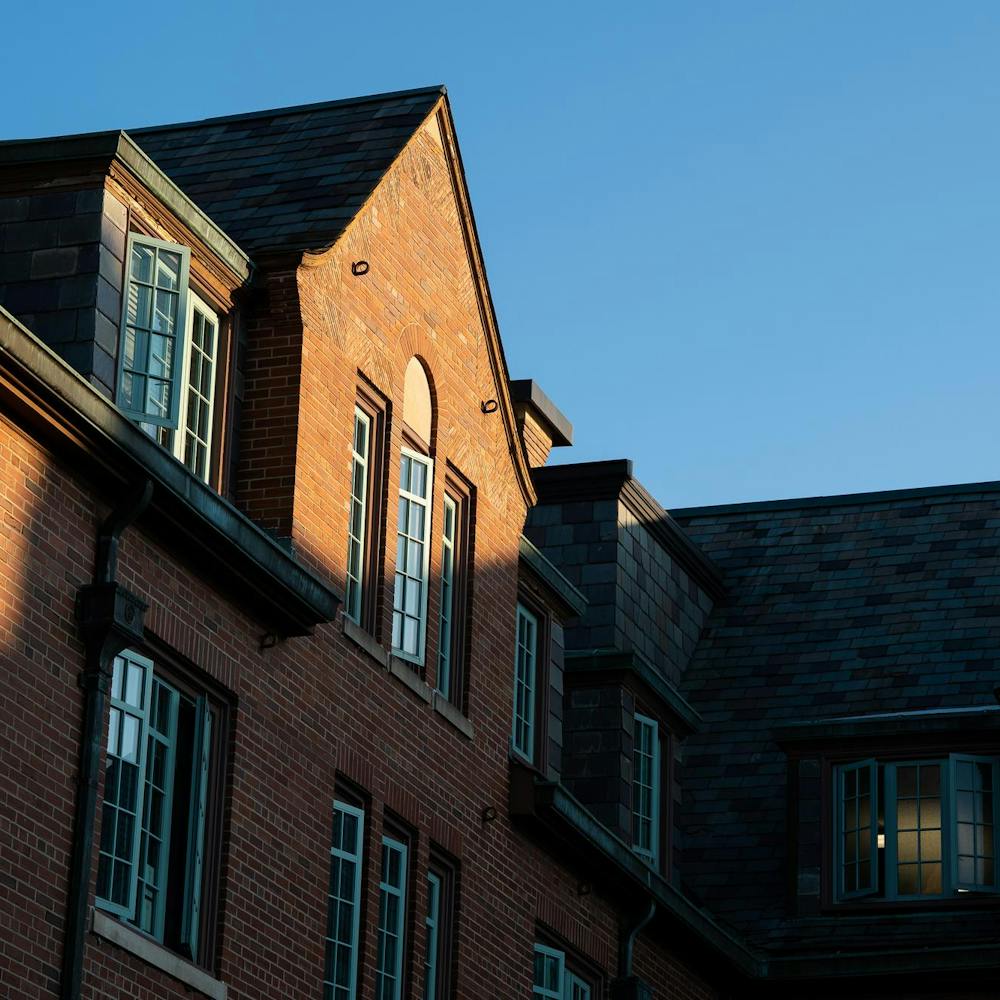For some students, class schedules are filled up by various major and minor requirements. But many others have some room left each semester to add an interesting – or easy – class.
Before the open enrollment date ends and fall semester enrollment begins, here are some classes that might be worth that extra open spot in your schedule.
CAS/AL114: Creativity and Innovative Entrepreneurship
This three-credit class focuses on the creative process that entrepreneurs experience and challenges students to develop problem solving methods. Academic specialist and professor of practice Ross Chowles teaches the class. He describes it as “vital."
“It's a class where you work out whether you've got the stuff to be an entrepreneur or a creative thinker, or whether you just want to work for a company and get told what to do," Chowles said. "Because that's what most jobs are. It's a system, you execute the system, there are rules, you follow those rules. We are stepping outside of that.”
Chowles said that his hope is to take his 22 years of experience and lessons from running his own company and relay that to the students in this class.
“It's all wrapped up in real world grounded, logical, straight talk. No puffery communication,” Chowles said. “So, this is not a highly scientific course. This is a street course, this is seat of the pants, which is really what entrepreneurialism is because you're learning lessons real time when you're doing it.”
Chowles said that the class is meant to give students an idea of what it is like to be an entrepreneur – assess consumer needs, come up with an innovative idea and sell it.
Students have a problem to solve every class, Chowles said, and there is no right or wrong answers.
HRT430: Exploring Wines and Vines
HRT430 only has one prerequisite: all students must be 21 or older. The reason? This class teaches students all about the history of wine and gives them the opportunity to taste different varieties of wine.
Fruit tree physiology and wine education professor Gregory Lang teaches the class. He uses his connections in California and Washington to help supply some of the wines that are put before the students.
“I like to think of it a little bit as a capstone course for getting ready to go out into life,” Lang said. “It's a good class to sort of be making that transition from the college world into the working world, the social world and the next stage in life world. Because it's everything that you can possibly learn about wines condensed down into one semester.”
The wines you'll taste come from France, Italy, Spain, Australia, South America, South Africa and the United States.
While most students are seniors who are in their final semester at MSU, Lang said the class has a wide range of students. He’ll teach everyone from horticulture students that take the class because they have an interest in viticulture to business students who want to learn about wine so they can impress future clients at business dinners.
“That's what I really enjoy, is seeing that broad gamut and watching their education develop,” Lang said.
ATD430: Dress, Culture and Human Behavior
The way people dress can say a lot about their background.
Being able to read this dress is one of the many lessons apparel and textile design professor Therèsa Winge hopes students get out of her class.
“My mentor created this class because she did research with people indigenous to North America and people from West Africa and she realized that our understanding of dress was pretty narrow and it's very western, very colonized and very bias," Winge said. "She was like, 'what if we took a neutral word and we gave it this non-biased definition?'”
Support student media!
Please consider donating to The State News and help fund the future of journalism.
In order to understand fashion and in order read dress, Winge said a person needs to be a global citizen. The class teaches students how different ways of dressing can have significantly contribute to one's identity.
One of the main projects in this class is to “create a movement," something Winge says only takes three people to start. Her favorite submissions for this project came from a student who stood outside of a bar wearing a thong over her pants, claiming it to be the “latest trend.” She recruited other students from the class to show up wearing the same thing, adding to the movement.
“Pretty soon, two girls disappeared down a little alley and come back and guess what? They're wearing the thong underwear on the outside of their pants,” Winge said.
Students will also attend a cultural activity that is outside their own ethnicity and culture – whether it be a powwow or a punk rock club.
GLG201: The Dynamic Earth
GLG201 is an introductory course to geosciences. Professor Susannah Dorfman said the class covers the origin of the Earth, the beginning of the solar system, climate change and natural resources ranging from minerals to oil, gas and water.
Dorfman said the class is relevant to people's lives and the societal problems we have today.
“We'll learn new things about what geosciences are, that it's not just a bunch of dusty rocks in museums,” Dorfman said.
Even if the class doesn't spark inspiration for a scientific career, Dorfman hopes students will simply have fun in the class, too.
CSS203: World of Soils
While many MSU students may be familiar with the infamous 2-credit “World of Turf," “World of Soils” gives students the opportunity to learn about the importance of soil and the role it plays in ecosystems.
Senior turf grass academic specialist Thomas Nikolai said that one’s quality of life depends upon the food they eat, the water they drink and the air they breathe – all of which depend on soil quality.
“Soil is a valuable resource and ancient civilizations mismanaged their farmland which was an integral piece of the downfall to their empires,” Nikolai said. “With that said, it is not a doom and gloom class, its learning from past mistakes due to ignorance and there is no reason for educated individuals that will be leaders of the world to be ignorant about the irreplaceable resource."
In short, Nikolai said the objective of the course is to teach students to consider, appreciate and converse soil.
Discussion
Share and discuss “Interesting classes at MSU to help fill your schedule ” on social media.







